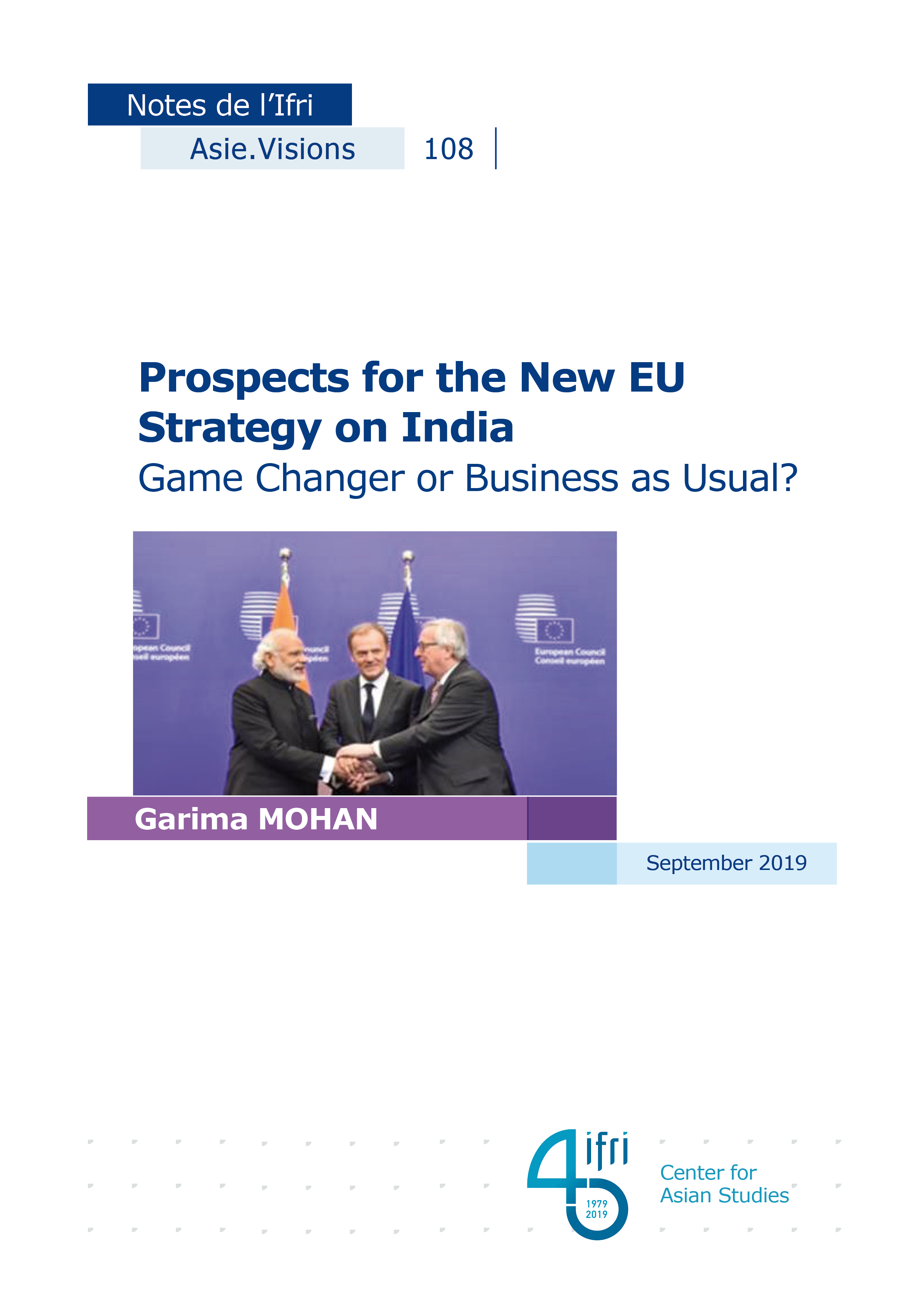Prospects for the New EU Strategy on India: Game Changer or Business as Usual?

The new European Union (EU) strategy on India marks a major moment of departure in EU-India relations.
It reflects three critical shifts: firstly, the EU no longer views India from a “trade lens” only, recognizing its important geopolitical role in maintaining a multipolar Asia. Second, the strategy frames EU-India relations in the context of broader geopolitical developments, primarily the rise of China. Recognition of the China challenge and its impact not only in Europe, but also on the balance of power in Asia, has pushed the EU to change the nature of its partnerships in the region, particularly with India. Finally, the strategy links European security and prosperity to developments in Asia, broadening the scope of EU foreign policy substantially.
This paper analyses the new EU strategy on India and highlights areas, which represent a departure from previous strategies. The paper looks specifically at proposals for greater foreign and security cooperation, for securing a rules-based order, increasing regional connectivity, improving trade and investment, and building better coordination on and with India. These proposals are commendable and respond to a long laundry list suggested by experts from both sides over a long time. They also fit well with India’s priorities, namely responding to increasing Chinese political, economic and military presence in South Asia, security in the Indian Ocean, as well as more proactive engagement in regional and global institutions.
Finally, the paper suggests ways of taking this forward and ensuring the strategy does not remain a paper tiger in the long arsenal of EU-India declarations. While more dialogues on global and strategic issues is a great idea and will help change perceptions in New Delhi that the EU is not a strategic actor, the EU will have to ensure this is not hindered by the Indian Ministry of External Affairs’ already overstretched capacities and the 30 existing EU-India dialogues. Focusing on ongoing debates in India and Europe in these dialogues, particularly connectivity projects, maritime security in the Indian Ocean, 5G networks and infrastructure might also open up new avenues of cooperation.
Overall the EU-India relationship has witnessed remarkable momentum over the last four years – aided by political will from both sides, the China challenge, friction in transatlantic ties, and common challenges within Europe and India. The new strategy is a good first step to build on this momentum. However, it needs to be translated into action fast.

Available in:
Regions and themes
ISBN / ISSN
Share
Download the full analysis
This page contains only a summary of our work. If you would like to have access to all the information from our research on the subject, you can download the full version in PDF format.
Prospects for the New EU Strategy on India: Game Changer or Business as Usual?
Related centers and programs
Discover our other research centers and programsFind out more
Discover all our analyses
China’s Strategy Toward Pacific Island countries: Countering Taiwan and Western Influence
Over the past decade, China has deployed a diplomatic strategy toward the Pacific Island Countries (PICs). This strategy pursues two main objectives: countering Taiwan's diplomatic influence in the region and countering the influence of liberal democracies in what Beijing refers to as the "Global South."

Opening up the G7 to South Korea to Address Contemporary Global Challenges
The G7’s global influence has diminished as powers like China reshape international governance through initiatives such as BRICS and the Shanghai Cooperation Organisation (SCO). With the G7 now representing just 10 per cent of the world’s population and 28 per cent of global GDP, its relevance is increasingly questioned.
Expanding SPDMM as a pivotal institution in the Pacific – A French perspective
The South Pacific Defence Ministers’ Meeting (SPDMM) is the only forum that brings together defense ministers from the wider South Pacific — including Chile, which is hosting it for the first time. This heterogeneous group of countries with varying resources, capacities, and interests — Australia, Chile, Fiji, France, New Zealand, Papua New Guinea (PNG), and Tonga — are united by their shared determination to strengthen cooperation on maritime security and humanitarian assistance and disaster relief (HADR) activities.
EU’s Derisking From China: A Daunting Task
With economic security as a major concern, the EU has recently turned to “derisking” from China. The EU strategy entails reducing critical dependencies and vulnerabilities, including in EU supply chains, and diversifying where necessary, while recognizing the importance and need to maintain open channels of communication.








